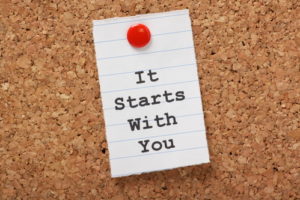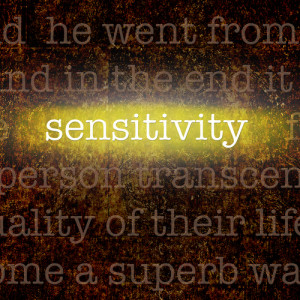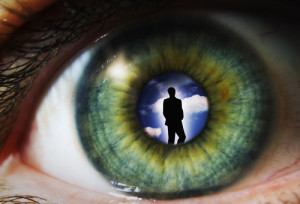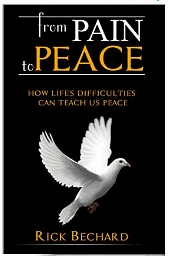 A Formula For Loving Relationships
A Formula For Loving Relationships
Why Working On Yourself Is Where It Begins
In my film about love and relationships, I asked the late psychotherapist Dr. Kenneth Wapnick how he would describe a healthy relationship. He replied that relationships could be seen as healthy to the extent that any of us could be in them without need.
This seems like a good formula for having a healthy relationship, but how are we to do this? By our very nature humans are need machines. Our physical needs are obvious: food, water, shelter, oxygen, the list is plentiful. Yet, our psychological and emotional needs are equally demanding and from my personal experience, impossible to satisfy.
The goal of this article is to go deeper into the understanding of our psychological and emotional neediness. Developing a perspective that we can relate to helps us to be with our feelings instead of projecting them on to others. It is a way of tapping into the love within us and then recognizing that everyone has that same love within them.
Moving forward, I believe we have two choices to consider. The first is to see love as an instinctual biological process to benefit the evolution of the species. The second is to consider that love originates from a different place and is something more spiritual.
For many, seeing love as something biological is tough to do. Acts of kindness, empathy and feelings of love when they occur, don’t feel motivated by biological evolution; rather, they seem to extend from another realm.
I like to call that realm the Mind.
There is the view in many spiritual and religious teachings that the mind is an indefinable entity not confined within time, space or the body. This postulate puts forth that the brain and the body behave in biological ways that the mind has already determined. Yet there is one caveat within this hypothesis that would explain why relationships in this world are complicated and help us understand why humans can sometimes be very loving or really mean.
This caveat puts forth that this entity referred to as the Mind, is split. One half of this split would be referred to as the ego. This part is conceptually self-identified, needy, and full of fear and guilt. The other split would be considered a thought system that represents we have no need and are complete.
Considering this theoretical principle of the mind as possibly true, it would provide us the framework to see that we as humans have identified with the ego split part of the mind. This in turn, would explain the underlying emotional neediness we all have. What’s more, this caveat stipulates that having identified with our ego part of the mind, we become unaware there is another part of the mind of which we could instead choose to identify with.
Because of our mind-level decision to choose the ego, we now experience our worldly lives as an individualized ego, spending much of our time satisfying the emotional and psychological needs the ego demands. What are those demands you ask? They are to find love, to feel important, to feel good about ourselves — in short, to feel complete. Having identified with our ego, we come to each other not out of an understanding of shared purpose and common interest, but rather to satisfy our need to find love. This is not love. Love does not seek to get anything. Instead, it extends and joins with the self-understanding that we are one.
When I was young and fully identified with the ego, my goal to meet others was to see what I could get from them. I would look for people who would make me happy and feel better about myself or make me feel important. I knew that if I walked down the street with a beautiful woman, a famous actor or perhaps a head of state, others would perceive me as significant versus had I been walking down the street with a homeless person. This was selfish thinking. When one identifies with the ego, it is what one becomes.
Challenging for us is that the drive to satisfy our needs is very powerful, and the ego is a bottomless pit of need. No matter what we seemingly attain in the world or within our relationships it will never be enough. No matter what type of relationship we experience, ego dynamics will rule and they can be so subtle. For example, when we are upset because someone didn’t say “thank you” as we opened the door for them, or someone forgets our anniversary, we begin to think they don’t care. If we don’t get a promotion at work, we begin to feel less important, or if someone cuts us off in traffic, we immediately think: “How dare they!”
For the ego, the world is full of meteorites that at any moment can take away our peace. This happens when we try to measure love by what someone does or does not do for us. It happens when we feel disrespected because someone cut us off in traffic or feel less worthy because we didn’t get a promotion.
There is not one thing, circumstance or person that has the power to extinguish our personal emotional emptiness and psychological self-loathing. Only we have that power. Being oblivious of this, many of us have entered relationships thinking this person or that situation will make us feel whole and give us the love we desperately seek, only to find ourselves later still feeling empty and disillusioned.
On one level we all recognize this is true and the problem we have faced is not knowing what to do about it. This is where Dr. Wapnick’s formula for a healthy relationship comes to center stage. It does so because it helps us to understand that our neediness will ultimately sabotage all our relationships, and the only way for our relationships to improve is for us to improve.
To that end, the only way to reduce emotional and psychological need in our relationships so they can truly be loving is to begin working on ourselves. Whatever that might look like for each of us does not matter. What matters is our willingness to develop a state of mind where we realize happiness is our responsibility. When such a revelation occurs, it reflects we have begun to identify with the part of our mind that reminds us we have no need.
As this new consciousness flickers in, we begin to recognize that there is no need to chase love because love is who we are. It is this awareness, which begins to change the attitude we have within all our relationships. Our relationships may in form still look the same; some being messy while others appearing more empathetic. The difference will be that our inner spirit won’t be messy or filled with empty kindness. We will be authentic with our love and less likely to approach others for what we believe they can give us.
Yet, let me provide one important disclosure. We won’t apply this formula for a healthy relationship perfectly. Undoing the ego does not happen overnight. It is a life-long process that likely involves pain and various types of relationships. It will not be a sin when we don’t get it right, because mistakes can be corrected. It is healthy to be self-forgiving when we find ourselves re-identifying with the ego.
What matters is we maintain the willingness to see everyone as ourselves and understand that each person is fighting their own battle to survive. It is this perception that will be the glue that guides us not to attack, but to join with others.
I know from experience having done it my way never worked. It has cost me nothing to apply this formula and since its application 25 twenty five years ago I can see its efficacy. I’m still fully human with all the feelings that accompany the human experience. The difference is, I own all of it.
Over time, I’ve noticed I hold onto feelings of anger, disappointment and frustration a little less longer and find I smile just a little bit more. Even more significant, I no longer have an underlying need others are what I want them to be. It feels like I have been released from jail and the odd thing is I had imprisoned myself.
We are all imprisoned by the ego and the above formula is the key to get out.
 Recently, an elderly lady confided in me that she had been born “without enough skin.” It took me a moment to realize she was referring to a psychological condition and not a medical one.
Recently, an elderly lady confided in me that she had been born “without enough skin.” It took me a moment to realize she was referring to a psychological condition and not a medical one.
Being born without enough skin is a metaphor for expressing that we are unusually sensitive to what others might say about us. Sensitivity can be a good thing, if used in the context that we are being sensitive to another person’s personal struggle.
However, in my friend’s case, her sensitivity can be viewed as more of a fearful state rather than a compassionate one.
She had come to a point whereby she recognized how defensive she was to almost anything anyone might say. She took things personally. Her skin was too thin to serve as an adequate repellent to even the slightest criticism. Constructive comments or observations by others seemed to penetrate her soul and imply she was not good enough.
In truth, she had just as much skin as I do. What she lacked was the understanding on how to not let what people say determine one’s worth.
This is challenging to do.
When we were young, many of us likely heard that we were a good boy or good girl for cleaning our room. Such a statement made us feel good, and I’m not against giving children compliments. Children are fragile and it is important to build their self-esteem.
But as children grow, it would be helpful to get the message across that they are “inherently good,” regardless if they are able to clean their room.
Instead of statements that put behavior as an indicator of one’s worth, comments describing what someone has done or expresses how we feel would send a better message. Telling Johnny that he was kind or thoughtful for cleaning his room or pointing out to Mary that you were encouraged or pleased that she did her homework shows them they are naturally good.
It underscores their value not because of what they did, but rather who they are.
Invariably, we are going to hear statements that seem to say that what we did or didn’t do made us good or bad. It is important to know neither is true.
Neither is true because we are as God created us. We were fashioned in his image of perfect love and this is who we are. This fact cannot change. Many of us have forgotten this unequivocal truth, resulting in our defensiveness to what others may say.
Unaware of our perfect nature, we mistakenly use the world to tell us who we are. Each day something seems to break through to our heart and hurt our feelings. Yet feelings can mislead us and they don’t always indicate what is true.
We don’t need “thick” skin to protect us. We simply need remember that God doesn’t make mistakes and what others say has nothing to do with who we really are.
 Did you ever wonder who you were, what identified you?
Did you ever wonder who you were, what identified you?
Most of us use specifics to define us, such as gender, color, nationality, religious belief, money, address, job title, or some other parameter. But do these things define us? Is what we do, what we look like or where we live determine who we are?
I can’t imagine so.
In my book, From Pain To Peace, I discussed an example of how in today’s medical world, one could have both legs removed, both arms, as well as a kidney and still be alive. Yet, should such a surgery occur, would the person who had it no longer be who they once were? This hypothetical post-surgical question lends itself to the direct question: Who or what are we?
I believe we are not our gender, skin color or job title. We are not even our body. Perhaps such a statement will not appear as a news flash to some of my readers. Plato himself was alluding to such a consideration in his Allegory of the Cave circa 450 B.C.
So, if bodies are not who we are, then there must be an explanation, a theoretical one as least, which would provide a framework for understanding our physical selves and our psychological egos. Some type of explanation that would shed light on our conflicted human identities from a spiritual slant.
Well here is that slant.
Beyond the world of time and space, the ego is nothing more than an idea of being separate from God.
At this metaphysical level, our mind seems “split in two,” and one of the splits buys into the ego’s idea of separation, accepting it not just as an idea but as true.
Our split mind believing that the ego’s idea of separation is true, results in thoughts of sin, guilt and fear. These thoughts imply we did something bad, which we feel guilty for and are now afraid of future punishment.
The experience of these mind-level thoughts of sin, guilt and fear result in a “state of mind” that is truly unbearable. Our split mind’s defensive solution to address such a fearful state was to deny it, and project these thoughts outward.
Known by scientists as the “Big Bang,” this “mind” projection made up the entire universe of time, space and individual separated “ego” selves.
Each one of us, psychologically unaware we are projected ego thoughts of the mind, identifies with our respective bodies and mistakenly conclude that this is who we are. We have come to believe the world made us, never aware that our split mind made the world as well as our projected identities within it.
The inherent problem with the ego’s mind-level defensive solution to project sin, guilt and fear outward, is that this denied guilt seeps into our everyday lives. The ego’s solution to our “human experience” of guilt was to continue its defense mechanism of projection.
We as identifying individuals continually project this inner guilt onto the world around us. This projected guilt takes the form of human problems such as constant neediness, difficult relationships, physical shortcomings, illness, financial woes, political strife or anything else we want to blame for our earthly dis-ease.
Our projections onto the world around us are to the ego’s delight. We spend much of our time trying to solve these worldly problems and never turn within to see where the real problem is. The problem is always our mistaken belief in the ego’s idea of separation. This in turn keeps the ego in place and prevents us from recognizing our true nature, which is one with God.
What is one to do with this spiritual slant?
Nothing really. Just be aware of how one operates. The next time you are upset about anything, just understand that what is bothering you is simply your projected guilt. Be aware too, who you think you are, may not be you at all.
This type of thinking empowers you because it puts you in control and responsible for how you feel. You will be less defensive because you will recognize that whatever is upsetting you truly has no power to do so. Further, you will have less attachment to the world around you and those things you think define you.
This is not to suggest one stops believing in their human identity or is not involved in human concerns. But, it does offer a person the option to consider that while we live our human lives, we don’t have to manage, manipulate and control the world around us for peace to be present. Peace always stems from remembering who we are as one with our Source.
It is up to each of us to choose to look at ourselves differently. That is where free will rests. We don’t have to let our bodies or our psychological ego tell us who we are.
We have a mind for that.
[contact-form][contact-field label=’Comment’ type=’textarea’ =’1’/][/contact-form]
Recently, a young man named Steve asked me for some advice regarding his troubled relationship with his girlfriend.
He discussed with me how he had made some life concessions in order to be with her, which involved moving his residence from another state, which in turn also affected his basketball playing, (he is a very good basketball player with hopes to go professional)
A year after making these changes, things were about to change again. His girlfriend wanted to move once more and he had already become situated in this new location. Her argument was that she needed to move for educational and career reasons, yet he felt that he had already done his part to show her he cared and now it was her turn to make concessions.
The burden of this relationship quagmire put a strain on their relationship and Steve didn’t know what to do. He was frustrated and filled with angst. He loved her but felt she was not doing her share to be with him.
There were a few other parts to this conversation that involved a side story of her being kissed by another guy at a party, but in the end I could see his fear regardless of what his storyline looked like.
When he was done speaking, I recognized many of the mistakes that young love brings with it and wondered what I would say that could ease his pain without me specifically telling him what he should do. Understanding that he was an avid basketball player I decided to use a personal sports example to help him cope.
I told him a story of a floor hockey game that I was playing in. There were a group of us about to play and three of the best players happened to be my two sisters and myself. The others knew of our ability and so when the teams were made, my two sisters and I were given players that for all intents and purposes, could hardly hold a hockey stick.
My two sisters and I immediately realized that there was no chance on earth we would — or ever could — win the hockey game that we were about to undertake.
Ordinarily, winning would have been our objective, because it made us feel good about ourselves. But this time, with the understanding that a win appeared very much out of our reach, the three of us psychologically removed the meaning that a win would have provided our egos and decided together just to play the game and have fun.
The game began and almost immediately it became apparent to myself and to my sisters that we were playing flawlessly. It seemed that not having a need to win resulted in our ability to make with ease, amazing plays and passes. To the awe of the other team we won that game by a large margin.
To this day my two sisters and I recall what we learned from that experience. We learned that wining should be an outcome and not a need. Further and in retrospect, I recognize that it was having been given the least capable players that served as the impetus for my sisters and I to get ourselves “out of the way,” which in turn resulted in us playing our best game ever.
After I recounted the above story to my young friend, I pointed out to him that in many ways, relationships are like a game. But in the relationship game whether we realize it or not we have a need to win…and that win is represented by whether or not we feel love has been achieved.
So I suggested to him, to the extent that he could, that he approach his current relationship without need. I recommended that he play the game of relationship but without the requirement his girlfriend behave a certain way. I reminded him that whether she is near or far or whether she does what he wants or not, his love for her does not have to be affected. Simply put, I told him that his relationship with her was a game that he doesn’t have to win.
Upon my finishing, I saw a smile come upon his face and a sense of weight seem to lift off his shoulders. For a moment he began to realize that he didn’t have to manage everything with her. He understood that he could just be in the game without having to win. It was this momentary awareness that allowed him to feel good about his relationship regardless of what direction it would take.
Love isn’t something to be won; it is a gift to be accepted. Not knowing this, we approach relationships with the underlying need to win love, never realizing that the purpose of the relationship was to help us realize that love was always present.
Worldly relationships have an inherent tendency to be complicated and messy and we can’t avoid that. If we approach them with a need to manage them in order to win love they will become nothing more than a disappointing experience and an uneasy game.
Yet, we can work to get ourselves out of the way and in so doing our relationships will experience a gentleness of acceptance instead of a fighting to win. No longer will we need to keep score to measure if love has been won. For love is an outcome of awareness and not a goal to be won.
If we remind ourselves of this, then no one loses.
 Buy the Book!
Buy the Book!